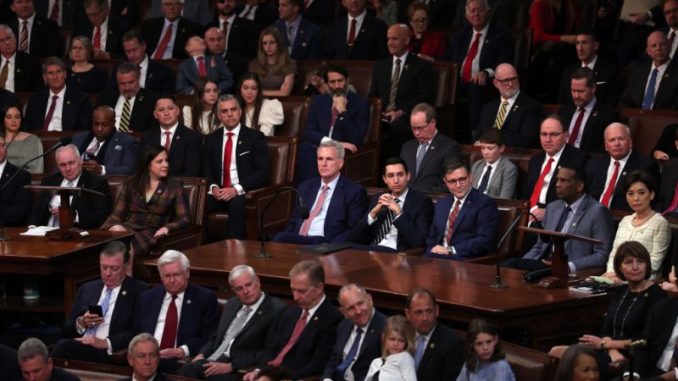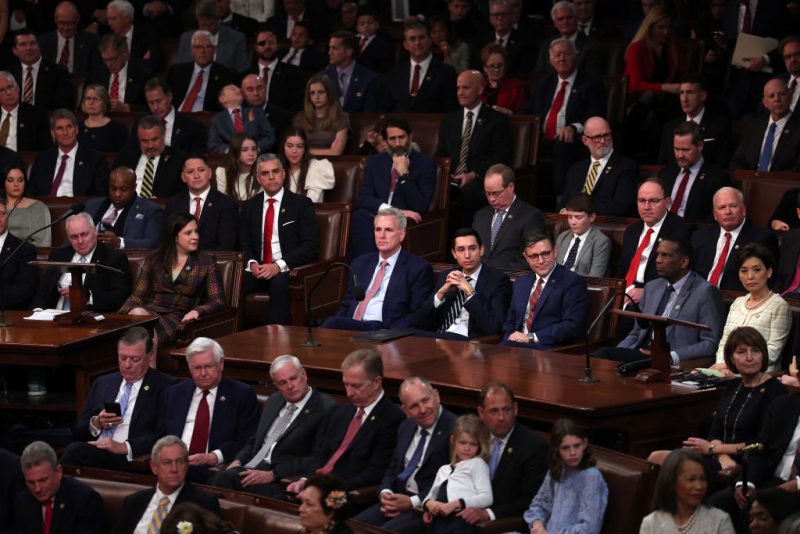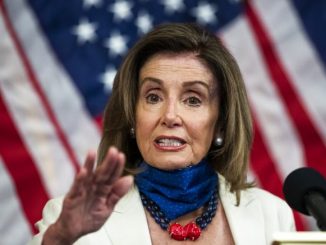

OAN Geraldyn Berry
UPDATED 11:38 PM PT – Tuesday, January 3, 2023
No majority has emerged in the First House Speaker vote, moving to the second ballot.
At the end of the tally, House Minority Leader Kevin McCarthy (R-Calif.) received 203 votes, Rep. Hakeem Jeffries (D-N.Y.) received 212 votes, and 19 votes went to others who were nominated including Rep. Andy Biggs (R- Ariz.).
The House began voting for a new Speaker on Tuesday. With 434 members in the chamber, 218 votes are needed in order to win the majority.
GOP leader Kevin McCarthy was proposed for Speaker of the House by Republican Conference Chair Elise Stefanik, receiving a chamber-wide applause. GOP Rep. Lauren Boebert (R-Colo.), however, refused to stand up during the celebration.
A small group of conservative politicians, many of whom are members of the House Freedom Caucus, have opposed McCarthy in large part. Some have voiced that the California Republican is “untrustworthy” and “has not done enough.” Essentially, they are not sure that he would stand up to the Democrats and President Joe Biden in a responsible manner.
As an alternative for McCarthy, Rep. Andy Biggs had also been nominated for House Speaker.
On the other hand, Democratic Rep. Pete Aguilar (D-Calif.) nominated Rep. Hakeem Jeffries for House leadership, noting that he is a Latino nominating the first Black man to the position.
Meanwhile, the vote is poised to go to a second ballot for the first time in 100 years after GOP members rejected McCarthy’s bid, and the 118th Congress cannot begin or swear in new members until a Speaker is elected.
This is a developing story.






Be the first to comment